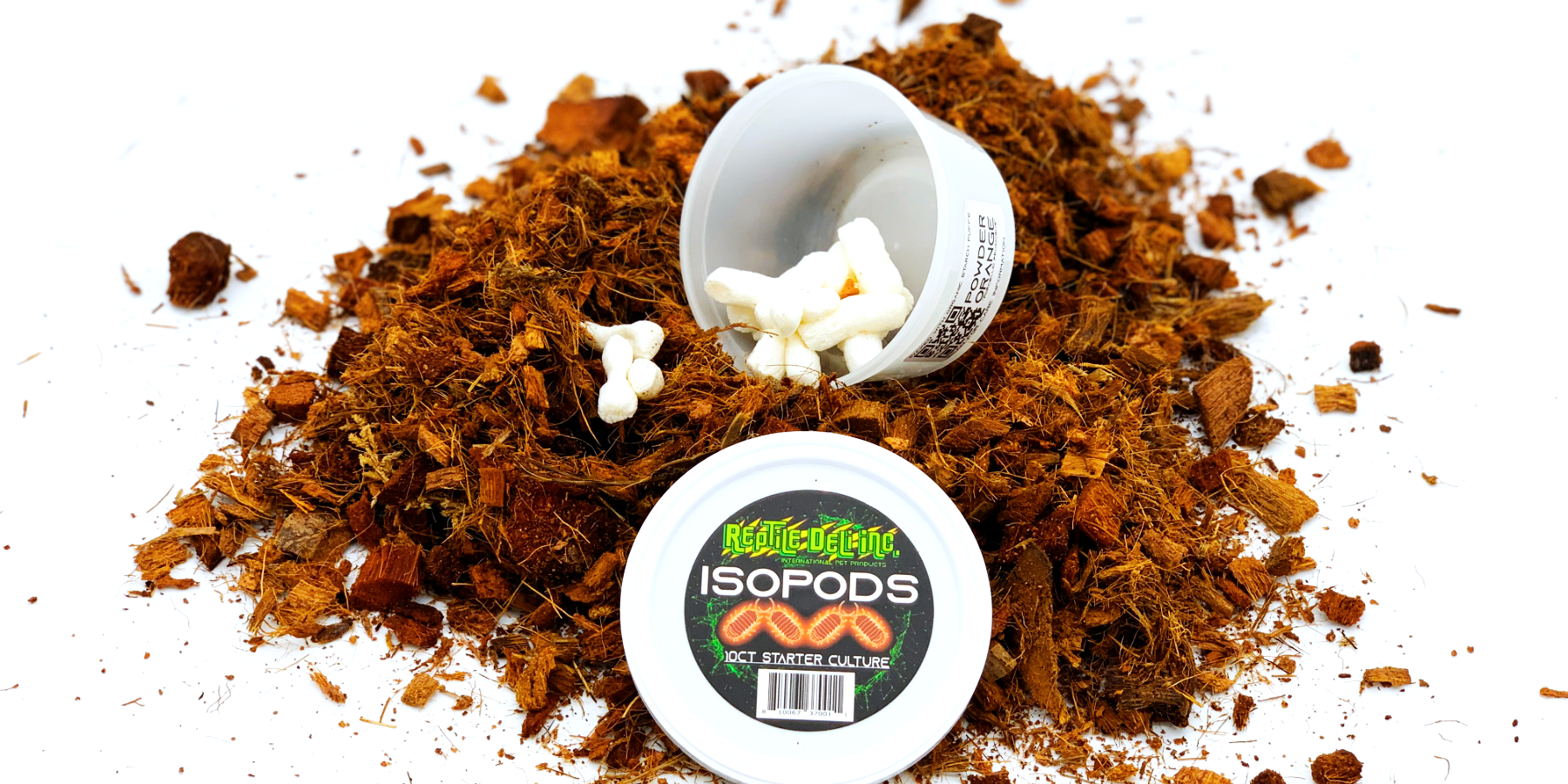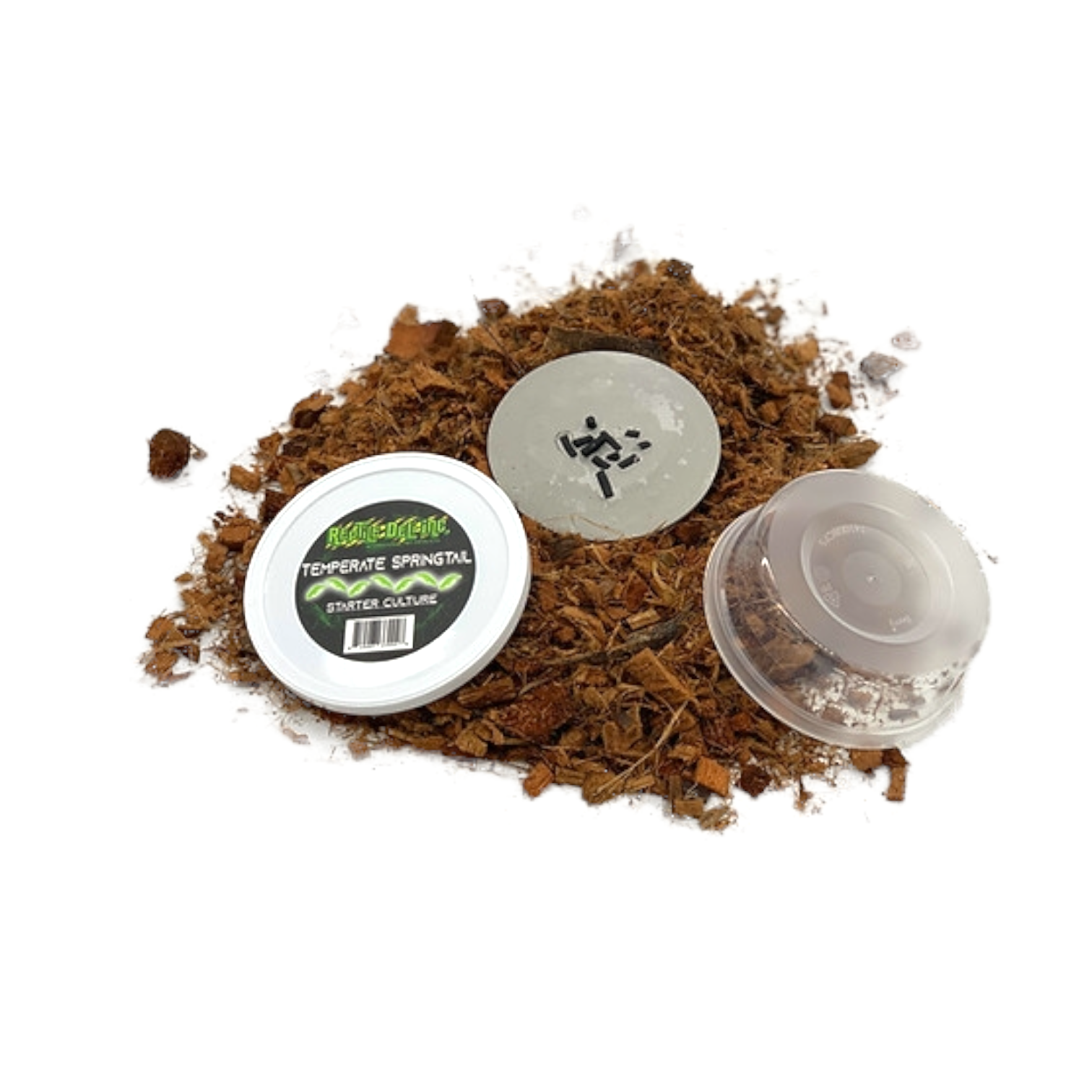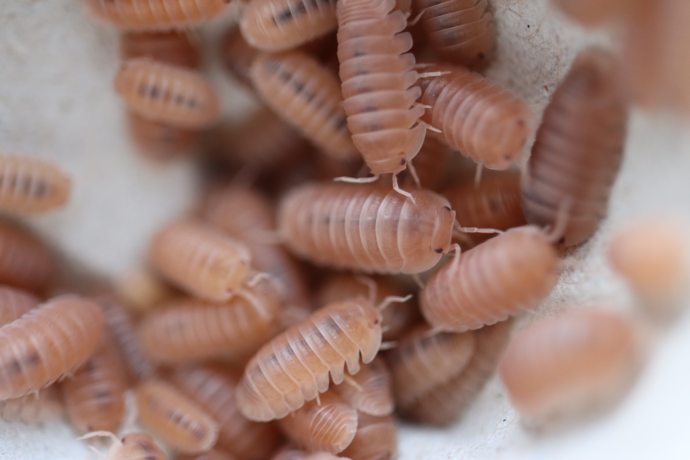How to Care for Crested Geckos
One of the most popular reptiles in the world, crested geckos (Correlophus ciliatus) are beloved for their charming looks and relatively easy care requirements. Native to New Caledonia, these arboreal geckos are a great choice for new and experienced keepers alike. This detailed crested gecko care guide provides everything you need to know about housing, diet, and general maintenance, including how Reptile Deli products can help you create a perfect habitat.
Crested Gecko Habitat & Enclosure Setup
A proper habitat is the most crucial part of crested gecko care. Since they are tree-dwellers, their enclosure should be taller than it is wide to provide ample climbing space.
- Enclosure Size: A single adult crested gecko needs a minimum of a 20-gallon vertical tank (18" x 18" x 24").Hatchlings and juveniles can be housed in a smaller tank until they reach adult size.
- Substrate: The substrate helps maintain humidity and can be part of a bioactive terrarium. A blend of coconut fiber, sphagnum moss, and organic topsoil is an excellent choice. Reptile Deli's bioactive mix is a great option for a naturalistic setup. You can also use paper towels for a simple, easy-to-clean substrate.
- Enrichment: Crested geckos love to climb and hide. Provide plenty of vertical climbing opportunities with:
- Branches & Vines: Securely place branches and vines throughout the enclosure.
- Live or Artificial Plants: Plants not only provide hiding spots but also help maintain humidity.
- Hides: Offer multiple hides throughout the enclosure. A coconut hide or a piece of cork bark works well.
- Feeding Ledge: A magnetic feeding ledge is essential for a crested gecko, as they prefer to eat off the ground.
Heating & Lighting
Unlike many other reptiles, crested geckos do not require a high-temperature basking spot. They are comfortable in a cooler environment.
- Temperature Gradient: Crested geckos thrive in a temperature range of 72-78°F (22.2∘C to 25.6∘C) during the day, with a slight drop at night. Temperatures above 80°F can cause stress and lead to health issues.
- Heat Source: In most homes, ambient room temperature is sufficient. If your home is cooler, a low-wattage ceramic heat emitter (CHE) on a thermostat can be used. Avoid traditional heat lamps, which can easily overheat the tank. Reptile Deli's heating & lighting collection has CHEs and thermostats to help you maintain a safe temperature.
- Lighting: While UVB is not considered mandatory for crested geckos, providing a low-level UVB light (2-7%) is highly beneficial for their overall health and well-being. It can aid in the synthesis of Vitamin D3, helping with calcium absorption.
Humidity & Hydration
Humidity is a critical aspect of crested gecko care, as they come from a humid, tropical environment.
- Humidity Levels: Maintain a humidity level between 60-80%. Use a hygrometer to monitor this.
- Misting: Mist the enclosure thoroughly once or twice daily, allowing the humidity to spike and then drop to around 60% before the next misting. This helps mimic their natural environment. Your gecko will drink water droplets from the leaves and glass.
- Water Dish: A small, shallow water dish should also be available on the tank floor.
Diet & Feeding
Crested geckos are omnivores, primarily eating a mixed diet of insects and fruit.
- Complete Gecko Diet: The foundation of a crested gecko's diet should be a high-quality, commercially prepared crested gecko diet (CGD). These powders are mixed with water to form a smoothie-like paste and contain all the necessary vitamins and minerals.
- Live Feeders: To supplement their diet and provide enrichment, offer live insects 1-2 times per week. The best choices are:
- Dubia Roaches: A highly nutritious and easy-to-care-for staple. Reptile Deli's cupped dubia roaches are a convenient option.
- Crickets: A classic feeder, excellent for providing hunting stimulation.
- Feeder Insects to Offer Occasionally: Reptile Deli's superworms and mealworms can be offered as a treat, while hornworms are a great high-moisture treat.
- Gut-Loading & Supplementation: All live feeders should be gut-loaded for at least 24 hours before feeding. Reptile Deli's Feeder's collection offers products to assist with this. While a quality CGD contains vitamins, dusting insects with a calcium supplement (with D3 if not using UVB) is still recommended.
Cleaning & Maintenance
Regular cleaning is essential for preventing bacteria and mold.
- Spot Cleaning: Remove feces and uneaten food daily.
- Deep Cleaning: A full deep clean of the enclosure should be done once a month, where all substrate and decor are removed and disinfected. If you have a bioactive setup, this will be less frequent, as the cleanup crew of Reptile Deli isopods and springtails will handle waste management.
By following this crested gecko care guide and using high-quality Reptile Deli products, you can ensure your pet lives a long, healthy, and happy life.




